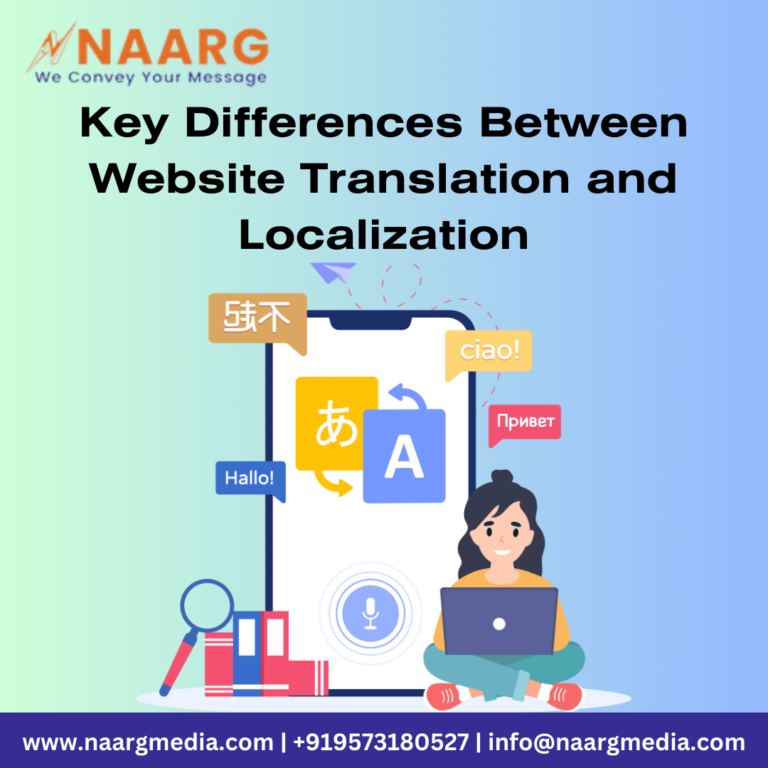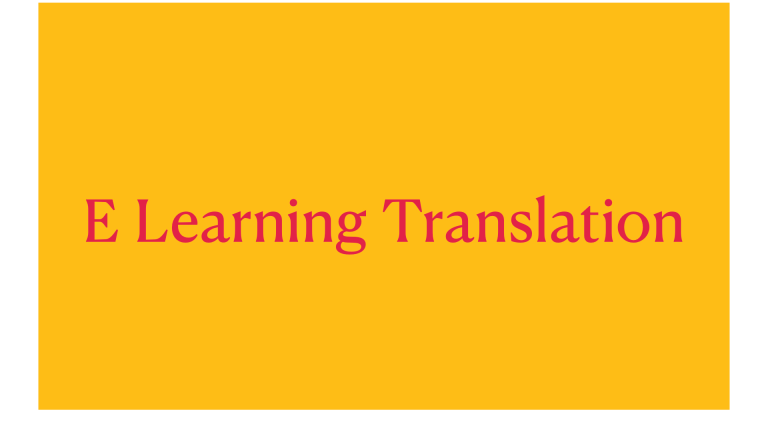We tend to use the terms website localization and translation interchangeably. There is no doubt both techniques are used to communicate your website content, products, or services to potential clients. While many tend to believe that website localization and translation offer similar functionalities, there are differences between the two.
And once you understand what these differences are between the two, it will help you extend the reach and expansion of your website more profitably and efficiently. To extend your website’s presence in the global market it is essential to translate your website to foster communication with the target market in their preferred language.
It is somewhat true that website translation will attract customers, but you will need both website localization and translation to create authentic and genuine connections that lead to conversions. So, are you ready to discover the differences between website translation and localization and learn how it can elevate your business in international markets?
So, let’s get started.

What is website localization?
In simpler terms, website localization is the process of adapting your website content according to the preference of the target audience. This process involves refining your website content through language and culture to provide the target audience with the most relevant and valuable user experience.
In the localization process, it considers the language dialects used in the target market and then adapts the website content accordingly for local consumption. Website localization encompasses various elements such as design, layout, website content, and even functionalities to ensure that the website feels as if it was created for the target audience.
The whole purpose of website localization is to create a seamless and culturally relevant user experience that fosters trust and engagement and increases accessibility to a global audience.
Why is website localization important for global business growth?
Website localization is essential for global business growth. Because when you take that extra step to localize your website, it connects better with the target audience who speak different languages. It also maximizes your chance to garner success when launching your business in an international market. Whether your website is designed to provide a service or to sell a product or information to its visitors, the message has to be clear and fully understood by the potential visitor to achieve maximum effects.
And according to W3Techs, only 56.1% of websites use English as of March 2023. And this figure was 60% back in 2022. If a large portion of the global population does not understand what you are talking about on your website, they are most likely to skip your website and your services. Even if you provide top-notch services. In short, all this data leads to one thing only: if you are not serving content to potential customers and, most importantly, clients in their native language, then you are missing out on potential revenue.
What is website translation?
The whole concept of website translation is very straightforward. It is the process of adapting your website’s content from its original language to another language. Often, website translation is word-for-word translation to make it accessible to a global audience. The translated website content mirrors the tone and style of the source content, but it does not consider the context. Website translation is the first step in reaching international markets.
It is essential to ensure non-native speakers can easily navigate and comprehend the website content. While website translation deals with linguistic aspects and different languages, it does not consider regional preferences or cultural nuances compared to website localization.
Why is website translation important for global business growth?
You must be wondering why you translate your website when it is already in English. A lot of people know English to some extent. But here is the catch: Only 25% of online content is in English, which surely makes it the most dominant language, but Chinese is the second most popular language, accounting for 19% of website content. The rest of the eight languages account for approximately 24%. We have seen time and again that websites presented in local languages tend to yield a better market response than websites that are not translated.
According to Common Sense Advisory, 73% of people want product reviews in their native language. All these statistics lead to one thing, the importance of website translation for your business growth. Website translation is a strategic move for businesses seeking to expand their reach and establish a strong presence in international markets. You can consider it an investment that eventually pays off by ensuring your brand message gets communicated effectively.
Key differences between website translation and website localization
Now comes the interesting part: differences between website translation and localization. As we know both these terms get used interchangeably, so it is not uncommon for marketers to be unaware of the differences—or even know that there are any differences. Here we have listed some of the key differences between website translation and localization to help you understand better.
- Website translation is the process of changing website content, like text, multimedia, ebooks, etc., from the original language to the target language by simply substituting words from one language to another. More like a word-to-word translation. Whereas, Website localization is a process that adapts the website content for local consumption. It goes beyond mere translation. In website localization, the website content is adapted in a way that appeals to the target audience’s cultural preferences in their local language.
- Website translation sometimes does not consider user experience elements and user experience is not optimized, which results in a less cohesive or familiar feel for potential visitors from the target culture. Website localization prioritizes the user experience and aims to create a seamless and culturally relevant user experience, Ensuring that the website and its content feel native to users, thus enhancing engagement and trust with the target audience.
- Website translation often focuses on the main textual content of the website, like product descriptions, articles, and navigation menus. Whereas, website localization localizes all the aspects of website content like graphics, images, date formats, currency, etc.
Both website translation and localization have distinctive objectives and scopes. The choice between the two depends on your business objectives.
How to pick the right company for website translation and localization services?
Now, you must probably be asking yourself: Should I invest in localization or translation? As mentioned earlier, both processes have distinctive objectives, so the answer may not be black or white. Your job could become easier if you opt for professional translation and localization services. But the question arises again: how do you pick the right company? We have curated a list of steps to consider while choosing a company for website translation and localization services.
1. Always make sure that the company can also do localization
While choosing a company for localization and translation services, make sure the translation agency not only translates but localizes your website content as well. Because sometimes, without localization, the translated material on your website might not convey the message to the target market. So, it is essential to search for a company that offers both translation and localization services.
2. The translation agency has a quality assurance process
While selecting a translation agency, make sure the agency has a quality assurance process. As you know, mistakes are bound to happen, whether it is with human translators or machine translations. What matters most is that the translation agency you opt for should have an efficient quality assurance and proofreading process. Always look for translation agencies that integrate proofreaders and editors into their workflow. And have a well-established review process in one place.
3. Efficient customer support
Having efficient customer support is a true sign of professionalism. Make sure that you are satisfied with their assistance and how they handle any crisis. A good way to measure this quality is by analyzing how they handle your initial query. If a translation agency is available for you at any given time, you know that you can rely on them for any issues that may arise during the project.
These are some of the crucial factors that you need to keep in mind when choosing a professional translation agency.
Whether you need website translation or localization services, Naarg covers it all and much more!
Get in touch with us today!

